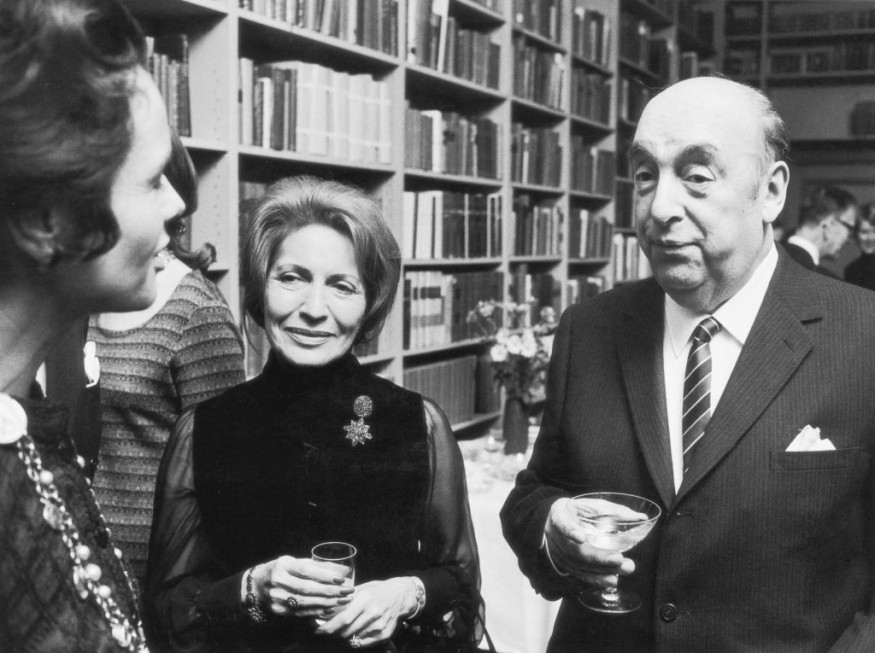Chile's Pablo Neruda: Get to Know the Great Poet Known for His Love Poems

Pablo Neruda, one of Chile's great poets, is known for his heartfelt works of romantic poems, with his famous works including "Twenty Love Poems and a Song of Despair" and "Residence on Earth, and Other Poems."
According to his biography on the Nobel Prize website, Neruda's real name is Neftali Reyes Basoalto. He was born in the town of Parral in Chile on July 12, 1904.
His father was a railway employee, while his mother was a teacher. The Chilean poet then spent most of his childhood and youth in Temuco city, where he also met Gabriela Mistral, the head of the girls' secondary school, who liked him.
Mistral became the first Latin American to receive the Nobel Prize in Literature, and Neruda became the second Chilean Nobel laureate in Literature.
Neruda started his writing career at the age of 13 and started to contribute some articles to the daily "La Mañana." His first piece of writing was an essay titled "Entusiasmo y Perseverancia."
He started using the name Pablo Neruda as his pen name when he became a contributor to "Selva Austral," a literary journal. Aside from mastering poetry, he studied at the University of Chile, focusing on French and pedagogy.
Pablo Neruda: Chile's Great Poet
Pablo Neruda's poems are described as "subtle" and "elegant" while being in the tradition of "symbolist poetry." His second book, "Twenty Love Poems and a Song of Despair," was inspired by an unhappy love affair that became an instant success.
It is still considered to be one of Neruda's most popular books. According to Britannica, the verses in his second book are described as "vigorous," "poignant," and subtle, with generous use of imagery and metaphors.
Despite being good at writing poems, his life as a poet was not a profitable one, which prompted him to translate several languages and publish magazine and newspaper articles.
He then managed to get himself appointed honorary consul to Rangoon in Burma, where he represented his country in Asia for the next five years.
Pablo Neruda's Death
The real cause of death of Pablo Neruda has remained a doubt across the world. Neruda died in a private clinic in Chile weeks after the coup.
His death was reportedly caused by cancer. However, the timing and the circumstances have raised doubts about whether his death was caused by something more.
The New York Times reported that there were forensic reports by experts noting that they exhumed Neruda's remains and identified bacteria that can be deadly.
The scientists confirmed that the bacteria were in his body when he died. But it could not be identified whether it was a toxic strain of the bacteria nor whether it was injected into him or ate contaminated food.
Neruda died in a clinic in Santiago at 69. He died two weeks after his friend and political ally, Salvador Allende.
Allende was Chile's leftist president from 1970 to 1973, who died by suicide as he tried to avoid surrendering to the military after his government was toppled in 1973.
Mexico offered to fly Neruda and his wife, Matilde Urrutia, out of the country after the military raided his residence. However, he was admitted to the Santa Maria clinic for prostate cancer.
The clinic then reported that Neruda died of heart failure. Before he died, Neruda called his wife to say he was feeling ill after he received some form of medication.
This article is owned by Latin Post.
Written by: Mary Webber
WATCH: Romance and Revolution: The Poetry of Pablo Neruda - Ilan Stavans - From TED-Ed
Subscribe to Latin Post!
Sign up for our free newsletter for the Latest coverage!
© 2026 Latin Post. All rights reserved. Do not reproduce without permission.














